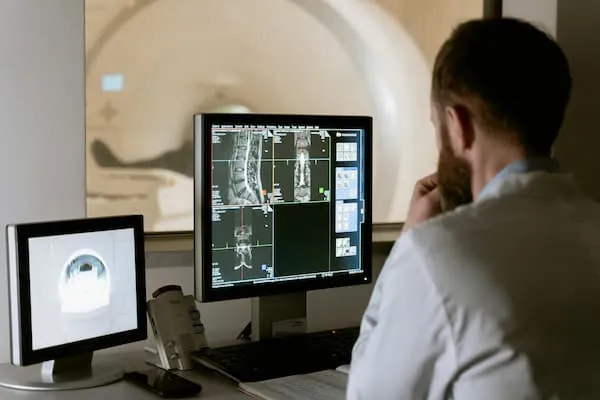Research · 3 min read
Human Factors Engineering in Healthcare
Explore how human factors engineering optimizes interactions between healthcare professionals, patients, and medical technologies to enhance patient safety, healthcare delivery, and medical outcomes.

Human Factors in healthcare represents a critical intersection of medicine, psychology, and engineering, focusing on optimizing the interactions between healthcare professionals, patients, and medical technologies. This article explores the foundational principles, methodologies, applications, and the transformative impact of human factors engineering in medical research, emphasizing the enhancement of patient safety, healthcare delivery, and overall medical outcomes.
Integrating Ergonomics and User-Centered Design for Enhanced Healthcare
Human Factors Engineering in healthcare is instrumental in understanding and optimizing the complex human-machine
interactions within healthcare settings.
Here’s an introduction to the key components of this interdisciplinary field, highlighting its significance in improving medical practices, devices, and patient experiences.
Core principles of human factors engineering in healthcare
- User-Centered Design: Placing healthcare professionals and patients at the forefront of medical device and technology design, ensuring usability, safety, and satisfaction.
- Cognitive Workload: Evaluating the mental demands placed on healthcare providers during medical procedures, diagnostic tasks, and technology interactions to minimize errors and enhance efficiency.
- Communication and Teamwork: Investigating the dynamics of communication and collaboration among healthcare teams, emphasizing the impact on patient care and safety.
- Patient-Centered Care: Integrating patient perspectives and preferences into medical research, emphasizing the importance of shared decision-making and patient engagement.
Methodologies in human factors engineering in healthcare
- Usability Testing: Assessing the ease of use and effectiveness of medical devices, software interfaces, and healthcare workflows through user feedback and observational studies.
- Task Analysis: Breaking down complex medical tasks to understand the cognitive and physical demands on healthcare professionals, informing the design of interventions and technologies.
- Simulation and Training: Utilizing realistic simulations for healthcare professionals to practice and enhance their skills in a controlled environment, improving readiness for real-world scenarios.
- Human-Machine Interface (HMI) Design: Optimizing the design of interfaces for medical devices, electronic health records, and communication systems to enhance user experience and prevent errors.

Applications of human factors engineering in healthcare
- Medical Device Design: Improving the design of medical devices and equipment to enhance usability, reduce errors, and ensure safe and effective use.
- Health Information Technology: Optimizing the design of electronic health records and health information systems to streamline workflows and improve data accessibility for healthcare professionals.
- Medication Administration: Evaluating the medication administration process to reduce medication errors through improved labeling, packaging, and administration protocols.
Patient safety and healthcare quality
Human Factors in Medical Research is instrumental in advancing patient safety initiatives, ensuring that medical interventions and technologies contribute to the overall quality and safety of healthcare delivery.
Challenges and considerations
- Integration into Clinical Practice: Addressing challenges related to the integration of human factors principles into routine clinical practice and healthcare system design.
- Ethical Considerations: Ensuring ethical standards in research involving human participants and balancing the need for data collection with patient privacy and consent.

Future Directions and Collaborations
- Telemedicine and Remote Monitoring: Exploring the application of human factors principles in the design of telemedicine platforms and remote monitoring technologies for optimized patient care.
- Interdisciplinary Collaboration: Strengthening collaborations between medical researchers, engineers, psychologists, and patients to holistically address human factors challenges in healthcare.
Conclusion
Human Factors Engineering in healthcare plays a pivotal role in shaping the future of healthcare by focusing on the human element in medical practices and technologies.
As advancements continue, the integration of human factors principles will be essential for creating patient-centered, efficient, and safe healthcare environments, fostering a culture of continuous improvement and innovation in medical research.
Mangold Observation Studio
The advanced software suite for sophisticated sensor data-driven observational studies with comprehensive data collection and analysis capabilities.
